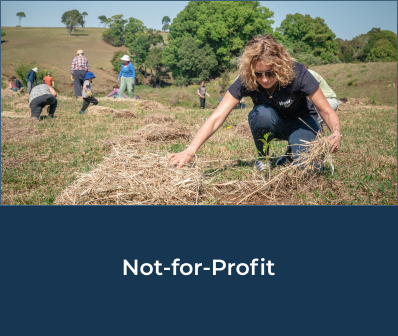Welcome to tax season! It’s time to prepare for filing your 2023 tax return. To help you get organized, we’ve put together a checklist to gather all the necessary information. The checklist along with a template to report your rental income and business income, if applicable, is located at the bottom of this article for download.
In this article, we would also like to remind you the key deadlines related to your filing obligation and highlight some of new tax changes for 2023.
KEY DEADLINES
Tax Filing Deadline for Individuals: April 30, 2024
Payment Deadline for Individuals: Any balance owing must be paid by April 30, 2024.
Tax Filing Deadline for Self-Employed Taxpayers (and their Spouses): June 15, 2024
Payment Deadline for Self-Employed Taxpayers (and their Spouses): Despite the later filing deadline, self-employed taxpayers (and their spouses) must still pay any balance owing by April 30, 2024.
Tax Filing and Payment Deadline for Deceased Taxpayers: If the death occurred from January 1 to October 31, 2023, the return must be filed no later than April 30, 2024. If the death occurred from November 1 to December 31, 2023, the return must be filed within six months after the date of death.
Tax Filing and Payment Deadline for Deceased Taxpayers who Carried on a Business: If the death occurred from January 1 to December 15, 2023, while the business was in operation, the return is due by June 15, 2024. If the death occurred from December 16 to December 31, 2023, the return is due within six months after the date of death. Regardless of when the taxpayer died, any tax owing is due on April 30, 2024.
Filing your income tax return on time is crucial to avoid interest and penalties. Additionally, timely filing helps prevent disruptions to benefit and credit payments, including the GST/HST credit, Canada Child Benefit (CCB), and Old Age Security (OAS) benefits.
Income Tax Instalments
You may be required to make tax instalments for 2024 if their net tax owing for 2024 is projected to be more than $3,000 and their actual net tax owing in either 2023 or 2022 was also more than $3,000. Tax instalment payments for 2024 are due by March 15, June 15, September 15 and December 15. Instalment interest and possible penalty will be charged by CRA if you do not pay your required tax instalments or paid insufficient amounts.
WHAT’S NEW FOR INDIVIDUALS
Payment to CRA above $10,000
As of January 1, 2024, remittances or payments to the Receiver General of Canada should be made electronically if the amount is more than $10,000. Payers who fail to comply with this requirement may face penalties, unless they can demonstrate that it is not reasonably feasible for them to remit or pay the amount electronically.
Advance Canada Workers Benefit
The process for receiving advance payments of the Canada Workers Benefit (CWB) has changed. Taxpayers no longer need to apply separately for advance payments using Form RC201 (Canada Workers Benefit Advance Payments Application). Instead, these advance payments are now issued automatically to individuals who were entitled to receive the benefit in the previous tax year.
Starting in July 2023 and based on the 2022 taxation year, the CWB will provide advance payments equal to 50% of the CWB across three payments under the Advanced Canada Workers Benefit (ACWB) initiative. Anyone who receives the CWB in 2022 will receive the advanced payments automatically.
Covid-19 Benefit Repayments
Federal, provincial, and territorial COVID-19 benefit repayments made after December 31, 2022 can be claimed as a deduction on your 2023 personal tax return.
First Home Saving Account (FHSA)
The First Home Savings Account (FHSA) is a registered account designed to assist individuals in saving for their first home. To be eligible to open a new FHSA in Canada, you must be resident of Canada and at least 18 years old. You must not have owned a home at any time in the year the account is opened, or during the preceding four calendar years.
Starting in 2023, contributions made to an FHSA are deductible, meaning they can be deducted from your taxable income, potentially reducing the tax liability. The annual contribution limit is $8,000 and the maximum cumulative limit is $40,000.
Moreover, the income earned within an FHSA is not subject to taxation. This means that any interest, dividends, or capital gains generated by the investments held within the FHSA will not be taxed as long as they remain in the account.
Furthermore, qualifying withdrawals made from an FHSA to purchase a first home are also not subject to tax. This provides a tax-advantaged way for individuals to save specifically for the purpose of purchasing their first home.
Working From Home Deduction
The temporary flat rate method for claiming employees’ home office expenses was introduced in response to the COVID-19 pandemic and was available for the tax years 2020 to 2022. However, this method is no longer available for the tax year 2023 and subsequent years.
For 2023 and future years, employees who incur home office expenses will need to follow the detailed method for claiming these expenses and get a completed Form T2200 from the employer. This involves keeping track of eligible expenses such as rent, utilities, and maintenance costs, and calculating the portion of these expenses that can be claimed based on the size of the home office relative to the total home space.
Deduction for tradesperson’s tools expenses:
Starting in 2023, the deduction limit for tradesperson’s tools expenses has been increased from $500 to $1,000.
Multigenerational Home Renovation Tax Credit
The Multigenerational Home Renovation Tax Credit (MHRTC) is a refundable tax credit aimed at assisting with the cost of renovating an eligible dwelling to establish a secondary unit. This secondary unit is intended to enable a qualifying individual, including seniors or adults eligible for the disability tax credit, to live with a qualifying relation.
The credit can be claimed for qualifying expenditures made or incurred after December 31, 2022, and for services performed or goods acquired after that date. It is available for up to $7,500, which represents 15% of $50,000 of qualifying renovation costs.
Residential Property Flipping Rule
For 2023 and subsequent taxation years, the new deeming rule applies to ensure that profits from dispositions of residential property, including rental property, that was owned for less than 365 days to be fully taxable as business income instead of capital gain and the principal residence exemption is not available. Any loss resulting from the sale of a flipped property is deemed to be nil.
There are exemptions to this deeming rule in certain circumstances. Exemptions include situations such as death, the breakdown of a marriage or common-law partnership, eligible relocations, and other life events. These exemptions may allow taxpayers to treat the disposition of residential property as a capital gain rather than business income for tax purposes.
The flipping rules also apply to assignment sales, where an individual sells their rights to purchase a property before the property is completed or transferred to them. Profits from assignment sales of residential real estate will be subject to the same deeming rule and exemptions as other dispositions of residential property.
Medical Receipts & Charitable Donations
When dealing with multiple medical expenses or donations to the same provider or charity, there may be an option to request a summary from the provider or charity to ensure that all expenses or donations have been accurately captured. Many providers or charities are willing to provide summaries upon request to assist individuals in managing their records effectively.
Ontario Credits No Longer Available
- The Ontario seniors’ home safety tax credit
- The Ontario jobs training tax credit
- The Ontario staycation tax credit
GG Observations
These changes reflect updates to tax policies and regulations aimed at addressing various aspects of taxation, including housing affordability, support for workers, and the taxation of certain income streams. It’s important to stay informed about these changes and file your personal tax on time. Please feel free to reach out to us if you need any assistance on your personal tax return for 2023.
2023 Personal Tax Return Documents




























